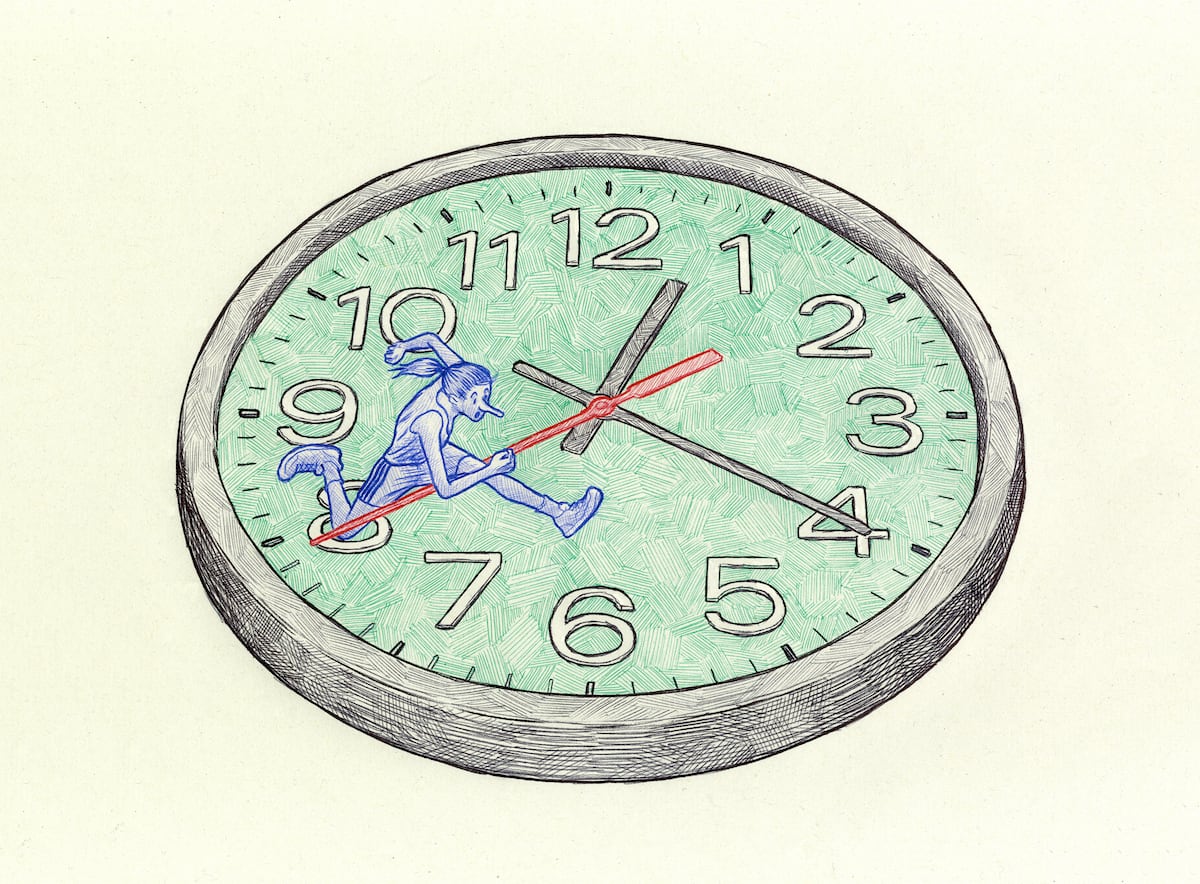As we get older, time management becomes a more pressing issue, perhaps because of that marketing law that "scarcity creates value."
Why, then, are so few people satisfied with the use they make of their days, hours, and minutes?
Arthur C. Brooks pointed out in the podcast
How to Build a Happy Life
(How to build a happy life) our tendency to bring more and more work to our free time.
He argues that there is an alarming gap between how we spend our time and what we really want to do with it.
The fixation for being "productive" makes many steal rest hours, weekends included, for tasks that should be limited to working hours.
This is especially dramatic in entrepreneurs and the self-employed, who extend the tentacles of their obligations to all the gaps in the calendar.
However, work is just one of the ways we have to keep ourselves permanently busy.
When asked: "What would you do if you had more time?", the most common answers are: "I would dedicate myself to what I am passionate about", "I would do more things with my family or with my friends", "I would talk more with my children ”.
However, these ideals are rarely translated into reality because we never think we have time, which is an illusion.
Says the psychologist Xavier Guix: "We are time."
And only those who are already dead lack time.
The question is how we use it.
Ashley Whillans, professor at Harvard Business School and author of
Time Smart: How to Reclaim Your Time and Live a Happier Life
(How to recover your time and live a happier life), notes that 80% of the professionals who participated in a survey defined themselves as "time poor".
However, just as it is absurd to earn money without being able to spend it, it is of little use to succeed without time.
How can we combat the "I'm hours away from everything I have to do" epidemic?
Professor Whillans talks about the “time traps” that lead us to invest almost entirely in “being productive”.
One of them is to give our career a priority role, to the point that we associate "being always busy" with being important.
Having a gap in the agenda can make us feel lazy or that "we are wasting time".
In the United States, according to Whillans, a female CEO can boast at a party of working 80 hours a week.
When productivity becomes a habit, free hours can only exist when an illness prostrates us in bed.
Is that healthy?
The key to everything is deciding if we want to get more money or more time.
The problem is that we don't know how to see free time as the true wealth that it is, since, although money cannot buy everything, anything we want to do requires time.
Putting this currency in the first place will fundamentally change our way of life.
Let's look at three practical measures.
1. Audit our agenda.
We should do a personal review of how we use our time outside of working hours.
How much do we dedicate to working after hours, to commitments that we don't feel like, or to scheduled activities?
2. Give ourselves truly "free" time.
If we fill the
afterwork
with too many activities and social commitments, then it is no longer free time.
Whillans cites a study that showed that people who schedule too much in leisure time end up seeing it as work and not enjoying it.
We need to relax and improvise.
3. Learn to do nothing.
The psychologist Martin Seligman affirms that
Homo sapiens
should really be called
Homo prospectus
, because even when it thinks it is doing nothing, it is programming the future: we think about our future, about what we must do tomorrow or, in a more domestic framework, about what We are going to cook tonight.
If we want to enjoy true disconnection, let's avoid projecting and truly rest in the now.
As Ovid said: “Take a breath;
the field that has rested yields a more abundant harvest.
the worst of stress
Being always busy is a highway to stress, since, no matter how many things we do, we will always have the impression that we do not reach everything and that we lack time.
Andrés Martín Asuero, PhD in Psychology and pioneer of
mindfulness
in Spain, points out that the worst thing about stress is not what happens from a biochemical point of view, when cortisol is triggered, among other hormones.
The worst thing is what we do to combat it.
A stressful day is often compensated by ingesting alcohol, with drugs or with compulsive shopping, with which we add an even bigger problem to our poor time management and consequent stress.
Francesc Miralles is a writer and journalist who is an expert in psychology.
Subscribe to continue reading
Read without limits
Keep reading
I'm already a subscriber






